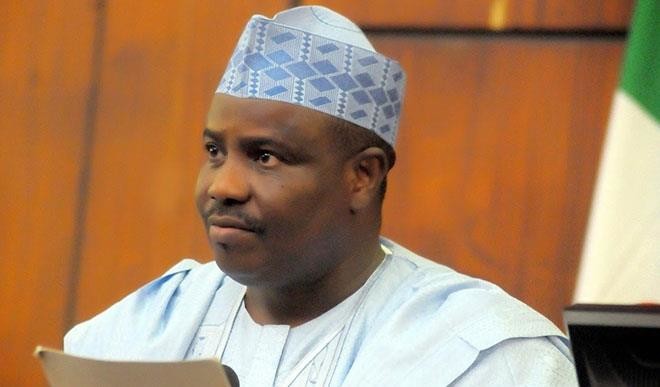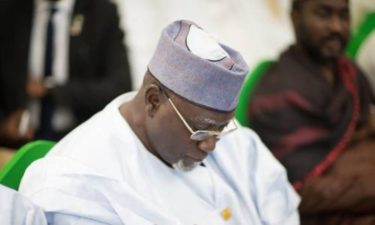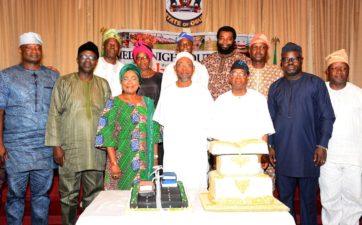By Mohammed Ibrahim
Sustainable development is the pathway to the future we want for all.
It offers a framework to generate economic growth, achieve social justice, exercise environmental stewardship and strengthen governance. – Ban Ki-moon
Attaining development, as encapsulated by the United Nations’
Sustainable Development Goals framework, is not by glitters of urban roads or gigantic structures as public buildings. All those may be good to have, but what is most needed in governance is a holistic take on all developmental indices for all-round progress.
There is no gainsaying that the developmental challenges bugging developing countries like Nigeria is long diagnosed to be the result of poor leadership. Due to this paucity of good leadership, the concept of governance is narrowed to non-issues; things that add little or no value to the lives of the governed, or without sustainable benefits.
It is, therefore, satisfying when you see a leader coming up with genuine, insightful and visionary ideas to turn around, not only the day-to-day course of life of his people, but also the face of the society. It is in this light that one finds the programmes and initiatives of the Sokoto State government under the leadership of Rt. Hon. Aminu Waziri Tambuwal as not only commendable but bold revolutionary interventions needed at this time.
A recent close monitoring of the news coming out of Sokoto has shown a lot of calculated governance strides that Tambuwal is silently implementing, which will certainly impact on the overall living condition of the people. These social intervention programmes, which cut across health, education, agriculture and job creation, are also not done without a lot of strategic thinking.
Only last week, the state government signed a memorandum on N2.8 billion joint annual plan with the United Nations Children’s Fund (UNICEF). The work plan, from details in the media, will cover the very important sectors of health, education, water sanitation and hygiene.
From his actions and words, Tambuwal has prioritised education as a tool for a more sustainable development. Sokoto, like many northern states, is often listed among what is termed Educationally Least Developed States (ELDS. This negative ranking is tabulated based on enrolment ratio, the out-of-school children, school dropouts and other parameters.
A state that is the nucleus of the knowledge-driven Sokoto Caliphate was unfortunately lagging behind in the area of education, especially for the girl-child. It was, therefore, revolutionising for Governor Tambuwal to marshal out sweeping policies aimed at turning around the statistics. To this end, the state government is aggressively implementing its state of emergency declared on the education sector.
The first of those bold steps was the announcement, early in the day, of enforceable basic education. The government, in an attempt to tackle the lethargic attitude of some parents to modern schooling, promulgated punishment against parents who refuse to enroll their school-aged children in schools.
To make it a carrot-and-stick policy, the administration went a step further by introducing incentives for parents who enroll their daughters in school, through a conditional cash transfer scheme to enable them support their wards through school. The state government, I gathered, is fast hitting its enrolment target of 1.2 million pupils that are hitherto out of school.
As a surest path to development, the emphasis by the Tambuwal administration on education is not only commendable but exemplary to all his contemporaries, especially those from the North, which is educationally lagging behind in the country.
By making education the mainstay of his administration, Governor Tambuwal has put Sokoto, once again, on the pathway to greatness. If this noble agenda is pursued diligently, beyond the rhetoric as in many government programmes, then it is safe for one to expect Sokoto to shine among its peers in the nearest future.
In another revolutionary intervention, the Sokoto State Government is taking lead steps to harness the agricultural potentials of the state, in a match to a future without the easy petro-dollars.
Also, in line with its policy of planning, the Sokoto government acted reasonably by not rushing into donating tractors or sharing out aimless grants. Instead, it started off by going after statistical data.
The government has in place, a Technical Committee on Immediate
Framework for Agricultural Development, charged with developing achievable targets and master plan for harnessing the agricultural potentials of the state.
As a result of this, farmers in Sokoto State are now hopeful of profitable hamper harvest because of the level of technical and material assistance they receive from government. Already, the government is counting the gains of its methodic investment in agriculture, which has created over 27,000 jobs thus far.
Under health care, for example, the state government, like in all sectors, set out with a strategy by having 33 professionals brainstorm to come up with the Sokoto State Strategic Health Plan 2016-2020. One of the fallouts of this is the identification of six general hospitals that are currently being upgraded into premier reference.
Also, just as 2016 was coming to a close, Tambwal flagged off the Sokoto Contributory Health Scheme, where the government put down the seed fund of N100 million.
Another beauty of the Sokoto model under Tambuwal is his practice of governance as a continuum. Contrary to the usual practice in Nigeria, where inherited projects are abandoned, Governor Tambuwal went all out, since his coming, to ensure that all works he inherited are completed. The result today is the 500-units of Kalambaina housing estate, which has been completed and is being occupied. The 38MW Sokoto State Independent Power Project is also ready for operation.
In the last two years of Tambuwal’s stewardship in Sokoto, he has taken commendable strides, an indication that all hope is not lost in the search for a truly purposeful leader in the country.
Ibrahim wrote from Gwamna Road, Kaduna.
This piece earlier appeared in Daily Trust.




